The editorials were published on March 1, just prior to the opening on March 3 of the annual meeting of the People’s Political Consultative Conference and on March 5 of the People’s Congress’s annual meeting.
Most people believed that those involved with the editorials would be punished after the conferences, but the Department of Propaganda of the Chinese Communist Party (CCP) Central Committee acted immediately. According to Hong Kong’s Ming Pao newspaper, by March 5 the top officials of the “Economic Observer,” which initiated the editorials, had already been punished. The president and editor-in-chief were warned, the assistant editor-in-chief who drafted the editorial was fired. All 13 newspapers received a formal warning from the Propaganda Department.
Controlling Society
The editorial began: “China has suffered under the household registration system for too long! We hold that individuals are born free and have the right to move freely!”
The CCP first prohibited migration inside China in its first constitution, adopted in 1954, with a provision that has remained unmodified since. In January, 1958 the “Regulations of the People’s Republic of China on Residence Registration” were adopted, giving force to the constitutional provision.
By 1958 Mao Zedong had wrapped up the first of the anti-rightist campaigns and was ready to launch the Great Leap Forward. That campaign would cause a famine and 40 million deaths, mostly among rural peasants. The household registration system prevented the peasants from leaving their villages and escaping the famine.
Since then, the Ministry of Public Security has issued many new regulations that enhance or make more detailed the original regulations.
Chinese scholars have different explanations for the system. One mainstream view is the theory of a planned economy. Another less popular view is the economic crisis theory. Each of these theories partially explains the situation when the regulation was passed. Neither theory can explain why, after more than 50 years when the original conditions no longer exist, it’s still so hard to abandon or change the household registration system.
This system is one of the methods the communist regime uses to fully control Chinese society; reaching down to neighborhoods and villages, the household registration system touches every functional cell of society. Another method the Party uses to assert its control is to set up Party branches in grass root units, including every law firm and most of the private businesses.
The household registration system has also contributed tremendously to China’s economic development. Rural migrants to the cities provide a huge pool of cheap labor that, because the migrants are illegal, costs the state nothing in social services. The migrants’ low-cost contribution to China’s growth has indirectly helped the CCP stay in power.
Misreading the Situation
The simultaneous publication in 13 Chinese newspapers of an editorial challenging the CCP is unprecedented.
The journalists behind the editorials may have misjudged the situation. First, the household registration system has been a hot topic in Chinese society, the media, the Internet, and even in political circles for quite some time now. It is not a prohibited area.
Second, the leaders of the regime have already talked about it. During an exclusive interview with Xinhuanet on Dec. 27, 2009, Prime Minister Wen Jiabao mentioned that the Central Party Committee had made the decision to reform the household registration system.
In less than two months, Zhou Yongkang published an article on the household registration system in the journal “Qiu Shi” (Seeking Truth), the publication of the CCP Central Committee. In this article, Zhou, head of the Political and Legal Committee of CCP Central Committee and the former minister of Public Security, also promised to speed up the reform of the household registration system.
Perhaps Wen’s and Zhou’s comments gave the impression that change at the top had already started and so calling for change would not offend the Party.
Wen and Zhou had discussed how to enhance the management of the system, to make it more efficient and a better fit for today’s economy and changing society. Zhou Yongkang’s article used words like “manage (or control) people by identity card, manage (or control) people by housing, and manage (or control) people by job.” However one understands manage or control, Zhou was not suggesting abandoning the household registration system.
The editorial had suggested replacing the household registration system with a personal information registration system, which is more like the system used in most countries. The description of the two systems may seem similar, but the meaning is totally different.
In China, that the Party leaders talk about a subject doesn’t mean the media can talk about it; that the media talk about a subject doesn’t mean editorials can be published about it. Last but not least: even if one newspaper editorial can talk about something, that doesn’t mean 13 newspapers can publish joint editorials to talk about it.
Misplaced Appeal
The joint editorials appealed to the People’s Political Consultative Conference and the People’s Congress. If China had a functioning legislative body, such an appeal would make sense.
But without the permission from the Party, the issue of household registration would never be raised in either body. The representatives and the members of the two conferences are called a “hand-raising machine” for a reason. The two conferences are just a show that has to play every year. The representatives are just actors and actresses.
This year, the reward for participation is one laptop computer for every representative. Besides, every representative will spend about 1 million yuan (US$146,000) during the conferences, on meals, hotels, transportation, entertainment, and so on.
To safeguard the conference, Beijing activated the Moat Project. The governments, the law enforcement agencies, and the people of the six provinces and metropolitan areas surrounding Beijing were put on alert to protect the conferences, with 700,000 security force personnel deployed in Beijing. This is surely the most costly show in the world.
But a show is only a show, no matter how costly it is.
How Laws Are Made in China
When the CCP wants a law either to be passed or abandoned, the process is very fast and efficient—sometimes the legislation even anticipates events.
Speed is called for when the CCP wants to persecute a group or to benefit those in power. On Oct. 25, 1999, Jiang Zemin, who was then China’s paramount leader, attacked the spiritual practice of Falun Gong in an interview with the French newspaper La Figaro. Five days later, the “legislative resolution on banning heretic cults”—the so called anti-cult law that intended to provide the legal bases for persecuting Falun Gong—was passed by the Standing Committee of the National People’s Congress.
The 1982 version of the constitution provides an example of benefits being provided before their time. It was the early stage of China’s economic reform, and someone recognized the tremendous profits that would be made in future land deals, as the economy grew. One sentence was added to the constitution, the first sentence of Article 10: “Land in the cities is owned by the state.”
Chinese scholar Wang Weiluo, who now lives in Germany, has called this change “the quiet revolution.” Before they knew it, millions of people lost land that hadn’t been taken away even by the communist revolution and the Cultural Revolution. Only in recent years, as construction work in cities has destroyed thousands of houses and left owners homeless, did people realize that the legal change was made decades ago.
When bad laws—or measures with the force of law that have never gone through the formality of being passed—serve the needs of the CCP, change is very long in coming.
The reeducation through labor system, also called the forced labor system, is criticized by legal professionals and ordinary Chinese citizens. By means of reeducation through labor the state can deprive someone of freedom for three years without any legal process, plus one year extra. Reeducation also can be repeatedly applied to the same person without limit.
Reeducation through labor contradicts the Chinese Constitution and other laws. Moreover, it’s not even a law. It was a decision of the State Council in 1957 that has been amended several times, also by the State Council.
Because the reeducation through labor system has been so widely criticized the People’s Congress made an effort to replace it with a rehabilitation law that was listed on the 2005 legislative program. By 2009, the measure had failed to get to the floor. It’s still going nowhere because the reeducation through labor system is the Party’s most handy tool for persecuting people, especially Falun Gong practitioners, house church members, and human rights activists.
The household registration system is very similar. Everyone knows it’s bad, but nobody can change it, because it’s the Party’s tool.
There are only two situations in which the household registration system can be totally abandoned. Either the CCP finds an alternative law or regulation that can do the same job, or the CCP itself will disappear.
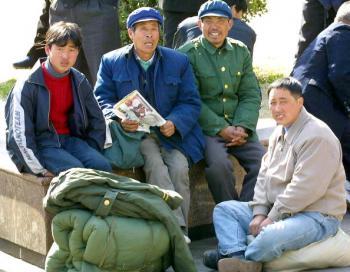

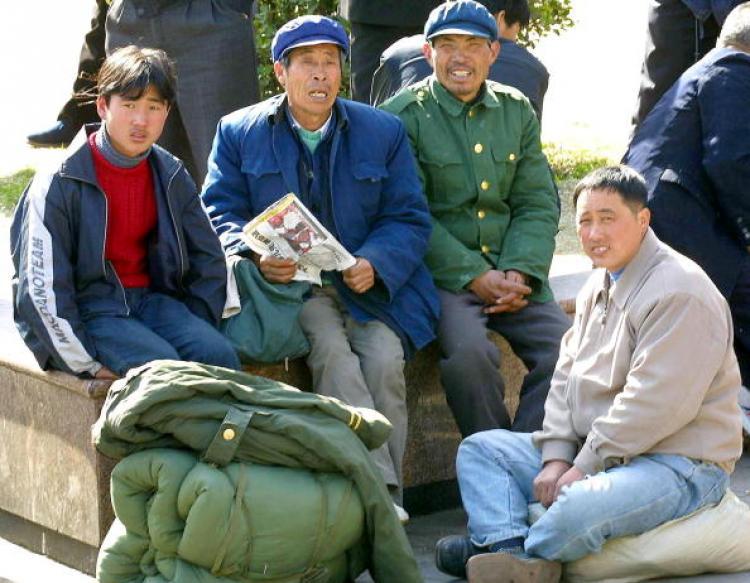
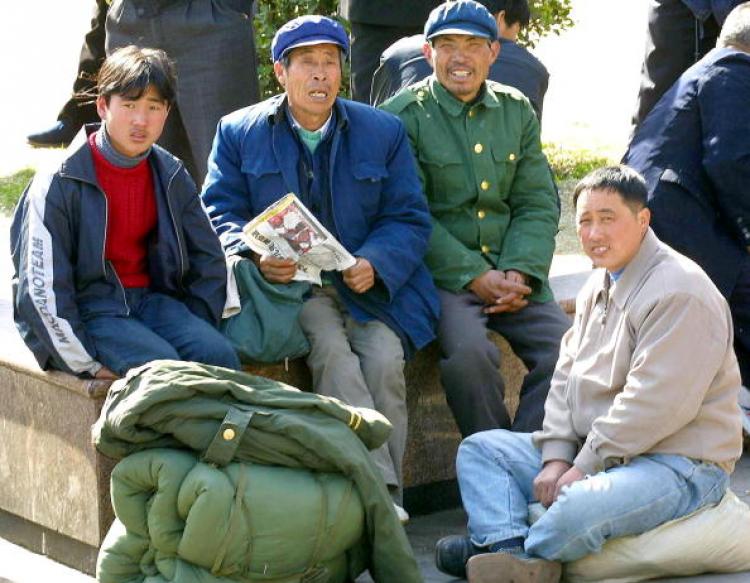
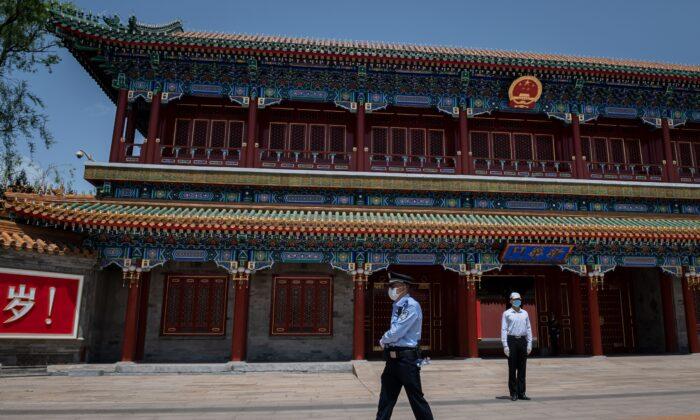
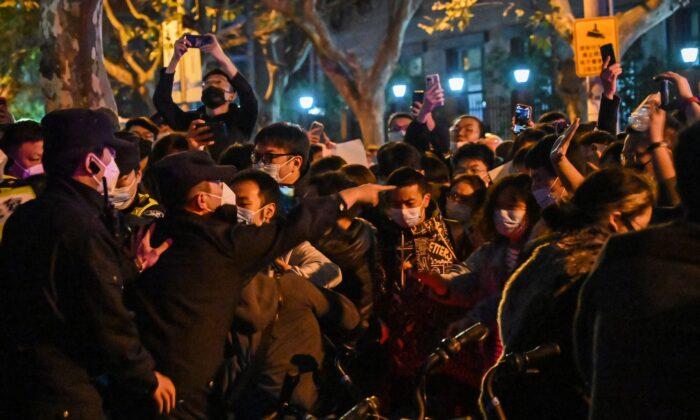
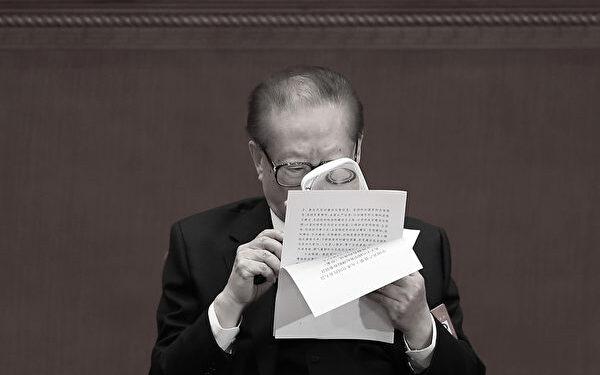
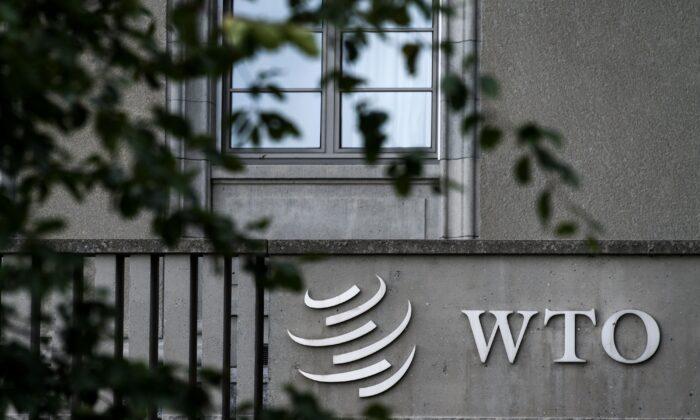
Friends Read Free